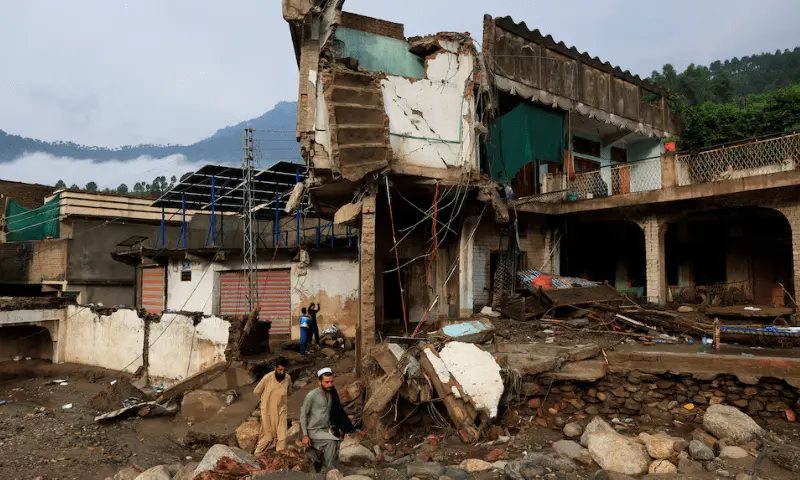The recent flash floods in Swat and Buner have sparked a severe health crisis, with hospitals reporting a sharp rise in waterborne diseases and other infections.
Health officials said diarrhoea, gastroenteritis, cholera, skin problems and respiratory illnesses were spreading fast due to stagnant water and damaged sanitation systems. Children and the elderly remain the most vulnerable.
An emergency has been declared at Saidu Sharif Teaching Hospital, the largest facility in Malakand Division. Doctors there said health staff were working round the clock as patient numbers climbed, while rural health units struggled with damaged buildings and medicine shortages.
One of the biggest concerns is the lack of tetanus injections. With many victims suffering from injuries, cuts, insect and snake bites, doctors warned that preventable deaths could occur if vaccines are not supplied quickly.
Clean drinking water is another urgent issue. In many villages, residents are forced to use contaminated water, leading to more cases of gastroenteritis and diarrhoea. “The shortage of medicines, especially tetanus injections, is alarming,” said Dr Adnan Khaliq, who leads a volunteer team in Mingora.
READ MORE: Shepherd’s Warning Becomes Lifeline as Ghizer Faces Flash Flood
Volunteers and medical groups, including PIMA and Al-Khidmat Foundation, have set up free medical camps, but supplies remain limited. Doctors also cautioned that without mobile clinics, vaccination drives and proper sanitation, a post-flood outbreak of waterborne diseases could follow.
Officials said long-term solutions, such as resettlement of at-risk communities and stronger healthcare infrastructure, are needed to prevent another disaster.









